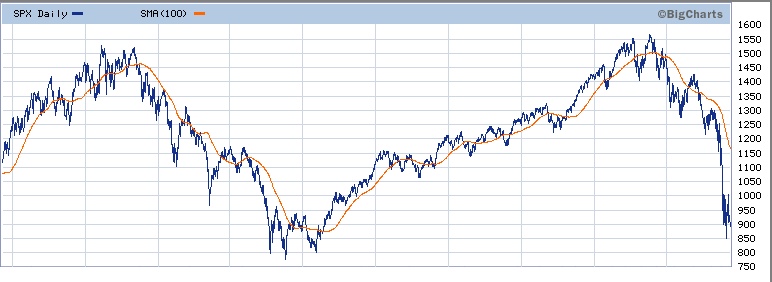Chief panic prophet Nouriel Roubini sees long-term decline:
The U.S. will experience its most severe recession since World War II, much worse and longer and deeper than even the 1974-1975 and 1980-1982 recessions.
There’s no hope of a V-shaped recovery:
a U-shaped 18- to 24-month recession is now a certainty, and the probability of a worse, multi-year L-shaped recession (as in Japan in the 1990s) is still small but rising.
And there’s a real
risk that we will end in a deflationary liquidity trap as the Fed is fast approaching the zero-bound constraint for the Fed funds rate
leading to global
stag-deflation
When a permabear like Roubini has been right so often for the past year (lo for the wrong reasons) it may seem a tall order to refute him. But John Tamny does an admirable job:
just as housing was the hot asset class in the early and late ‘70s, so was it this decade not due to economic growth per se, but thanks to currency debasement that always leads to a flight to the real. In short, the subsequent moderation of home prices has not been an economic retardant so much as it’s been the result of economic sluggishness that always reveals itself when currencies are allowed to weaken.
Roubini holds the reputation of soothsayer at present, but the very analysis that has made him all-seeing was faulty on its face. Lower home prices are an undeniable good for less capital going into the ground, as opposed to the entrepreneurial economy. What led to housing’s moderation of late was paradoxically what caused its boom. When currencies decline, hard assets do well, and investment in real economic activity withers. . . .
In short, Roubini made the correct call a few years ago about looming economic difficulty, but the call ignored the real cause which decidedly was the weak dollar. Happily for Washington’s political class, Roubini’s suggestions for “stimulating” the economy absolve it of its own mistakes, all the while allowing it to do what it does best: spend the money of others.


